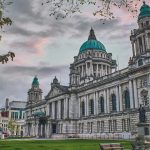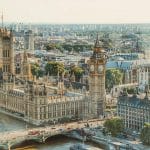In an interconnected world, the diversity of languages is a significant factor that people consider while planning their travels. As the heart of cultural diversity and international business, the United Kingdom, and particularly London, is one of the top tourist destinations in the world. Yet, the question arises – how do these cities adapt their tourism services for non-English speakers? Let’s explore the efforts being made on different levels of tourism services to accommodate and support non-English speakers.
Improving Language Support Services
One of the key steps taken by cities in the UK, including London, is to enhance their language support services. Here, we’ll delve into the various ways this is achieved, from offering English for Speakers of Other Languages (ESOL) courses to implementing language-friendly navigation systems in public transport.
A lire également : What are the hidden gem museums in Manchester for art lovers?
In the recent years, the number of ESOL courses has surged dramatically. These courses aim to ease the communication hurdles for non-English speakers. With the support of local governments and private funding, many cities offer these language courses for free or at a very low cost. They are designed to help non-English speaking tourists to adapt quickly and enjoy their stay in the city.
Another method adopted by the UK cities is the introduction of navigation systems in public transport that provide information in multiple languages. These systems have become a lifeline for tourists who cannot speak English, providing them with essential details such as destination, duration, and cost of travel.
Dans le meme genre : What are the most informative World War II history tours in London?
Enhancing Online Resources
The internet has become an essential tool for travelers to plan their trips, book their accommodations, and even learn about the local culture and language. Recognizing this, UK cities have made concerted efforts to improve their online resources for non-English speakers.
Firstly, many local travel websites now offer content in several languages. This includes information on tourist attractions, local cuisine, and cultural activities. Additionally, the cities have leveraged the use of online translation tools that allow users to translate the webpage into their preferred language instantly.
Secondly, virtual language courses have gained popularity, with many cities offering online ESOL courses. These courses allow future tourists to learn English at their own pace before their travel, ensuring they have basic communication skills when they arrive.
Implementing Multilingual Customer Service
In the service sector, communication plays a critical role. Understanding this, many businesses in UK cities have trained their staff to speak multiple languages. These multilingual staff are a tremendous asset in hotels, restaurants, and tourist attractions, where they can assist tourists in their native language.
In addition, many establishments have started to use technological aids such as translation apps and devices. These tools facilitate real-time translation, enabling staff to communicate effectively with tourists who do not speak English.
Promoting Inclusive Tourism
The goal of these measures is to promote inclusive tourism. By making cities more accessible to non-English speakers, the UK is broadening its appeal as a travel destination. This not only benefits the tourism industry but also promotes cultural exchange and understanding.
Cities have also started to promote inclusive tourism by organizing cultural events that celebrate the diversity of their visitors. These events often include language-specific guides or interpreters, ensuring that all guests can enjoy the experience fully.
Supporting Non-English Speaking Residents
It’s not just the tourists who benefit from these measures. Non-English speaking residents also find these services invaluable. For example, adult ESOL courses enable them to improve their language skills, which can significantly enhance their job prospects and social integration.
In conclusion, by adopting these measures, UK cities are not only enhancing their appeal to international tourists, but they are also improving the lives of their non-English speaking residents. This is a testament to their commitment to inclusivity and diversity.
Adapting Public Sector Services
As part of the commitment to cultural inclusivity, public sector services in UK cities have also evolved to accommodate non-English speakers. This is evident in the health, education, and local authority sectors, where concerted efforts are being made to cater to the needs of non-English speakers.
Health services have implemented multilingual signage, brochures, and websites, ensuring essential health information is readily available and understandable for all, regardless of language proficiency. Many hospitals and medical centres also employ interpreters who facilitate smooth communication between patients and healthcare providers, thus enhancing the quality of care received.
Local authorities have started to offer critical information in several languages. For example, details about tax procedures, such as income tax, and public services are made available in multiple languages to aid comprehension. Also, many local authority offices now have multilingual staff to assist non-English speakers.
Education services have also seen significant changes. Many UK cities now offer ESOL provision in schools, aiding the integration of non-English speaking students. They also provide multilingual information about school procedures, curriculums, and child support services, like ESOL childcare, giving parents who don’t speak English well the resources they need to support their children’s education.
Supporting People seeking Asylum
UK cities also extend their language support services to individuals seeking asylum. People seeking asylum often face language barriers that can hinder their integration and limit their access to essential services. UK cities are making concerted efforts to address these challenges.
ESOL courses are an integral part of these efforts. These courses not only help people seeking asylum to improve their language skills, but they also equip them with the necessary tools to navigate life in the UK. Recognizing the importance of this, many cities have increased ESOL funding, ensuring these courses remain accessible to all.
Furthermore, local authorities provide multilingual support in dealing with paperwork and legal procedures, significantly easing the asylum process. This support extends to social services, where non-English speakers receive assistance in their main language, enhancing their quality of life.
Conclusion
In a world where diversity is celebrated, UK cities are striving to ensure that language is not a barrier but a bridge that connects cultures. From enhancing language support services to adapting public sector services, they are making commendable efforts to ensure that non-English speakers feel welcomed and included.
Their commitment to supporting people seeking asylum, adult learning, and public transport navigation in different languages exemplifies their inclusive ethos. These efforts not only enhance the tourist experience but also improve the lives of non-English speaking residents and people seeking asylum, truly reflecting the spirit of the UK’s multicultural society.
In a nutshell, UK cities, while acknowledging the global prominence of the English language, are simultaneously embracing the diversity of languages, ensuring that everyone, regardless of their language proficiency, can enjoy a quality life in the UK. This commitment has set a benchmark for other countries, inspiring them to invest in similar initiatives.











